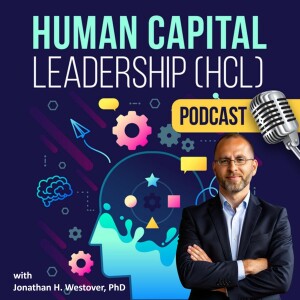

Let’s Plan for Your Retirement - (W1:D5) Debt Free Millionaire Personal Finance Course
Real Life: Do you want to work your entire life, or stop working – or lessen the amount of normal work – when you get to a certain age? This is retirement. When would you like to retire? Is it a year, or an amount of money? There are pros and cons to either choice, but there are some important things to think about when considering when you want to retire. By knowing what your requirements are to retire, you can find out what you need to do to get there.. We call this reverse engineering: start from your goal and think backwards on how to reach it.
Money to Retire On – Do you have enough money to survive on for the rest of your life? If you stopped working at age 60, and then lived for another 30 years, would you have enough money? Do you have a plan?
There are special savings accounts you can deposit into, that you can’t touch until a certain age (in 2021, it was 59 ½ years old). These include: IRAs, 401(k), 403(b), or other alternative retirement accounts. Are you secure financially, and will that money last you until you die? Here are some important statistics to know, about people who retire:
- According to Schwab Retirement, in 2021, the average American needs $1.9 million saved or invested, at the time of retirement;
- Only 58% of Americans are actively saving towards retirement;
- 48% of Americans have less than $10,000 saved in retirement;
- 50% of older Americans, nearing retirement, think they will live off Social Security;
- Only 36% of Americans know how much money they need to retire;
- 30% of women, and 15% of men, have no retirement whatsoever;
- Average debt per household is $31,000 at the time of retirement, while average income is $55,200;
- The average American dies at 77 ½ years, but the potential is that you may live longer.
Remember that cost of living is not your only concern when deciding when to retire, it is also the debt you are paying. If you still have a high amount of debt, you will need more money. If you remove your debt, you need much less. With debt, you could need $3,000 to $4,000 a month, depending on the amount of debt. With no debt (and a paid for house), you could do well with $2,000 - $3,000 a month.
As you get closer to retirement, most people want to play it safe in their investments, but you may not need to. If you do play it safe, you would need a higher amount saved. If you play it smart, you may only need half of that, and it will continue to grow. But again, the main question is, do you have enough to survive the rest of your life? Here is how you figure this out.
This is the amount you should have in your investment, growing by these ages (according to Synchrony Bank):
- Americans in their 30s: 1–2 times their annual salary
- Americans in their 40s: 3–4 times their annual salary
- Americans in their 50s: 6–7 times their annual salary
- Americans in their 60s: 8–10 times their annual salary
Think of it this way: how much do you want, or need, to spend each year, once you have retired? $50,000 a year? Then you need to figure out how many years you may survive past retirement. If you retire at 50, you could live 50 years - ‘til you are 100. 50 x $50,000 = $2,500,000. At the same time, if it is invested, whatever amount you have will continue to grow over the years, so you will need maybe ¾ of that amount, at $1.9 million in your retirement account. The government may also pay you $1,514 a month from social security, to help pay your monthly expenses. Can you survive on that, if you don’t have a retirement account? Someone without debt, who has a paid for house, could.
Social Security
Social security is what the government pays to the older generation, to take care of their needs. The problem is that it was supposed to take your money while you were working, and save it for you when you were older. Then it became, “take from the young and give to the old.” Now it’s, “put the money in the general fund and pay for Social Security by borrowing from general government revenue.” The question is, will it still be there when you retire? Should you rely on it? If it’s there, it’s more money for you; if not, then you have a backup plan, through your retirement account.
Things to Consider in Planning Retirement: Here is what you will need to do to plan for retirement:
- Are your kids out of the house? You may not want to retire until they are living completely on their own.
- What will you do afterwards? What do you want to do when you aren’t working anymore? Do you have the money to achieve these dreams? Do you want to travel, or stay home? You may want to have an idea and/or plan.
- Look forward to the longest vacation you'll ever have? If you think retirement is a long vacation, most Americans work after retirement either because they don’t have the money they need, or they are bored sitting around at home. According to US News, if you retire at 65, you have a 76% chance of living 10 more years, 38% chance of living 20 more years, and 5% chance of living another 30 years.
- Building relationships with those you can trust. Being alone, not having a purpose, impacts your health in retirement and can lead to early death. University of Berkeley found that, when you have a partner that makes you happy, you have a 13% lower chance of dying sooner.
- If you are within 3-5 years of retirement, you may need to start planning your tax strategy before your retirement.
- Remember that Social Security, if it is still around, doesn’t start until age 66(if you were born from 1943 to 1954). The full retirement age increases gradually, if you were born from 1955 to 1960, until it reaches 67. For anyone born 1960 or later, retirement benefits are payable at age 67. So, do you have enough money to retire early?
- Will you stay home, travel the world, or end up in a nursing home or assisted living facility? For these questions, when you get closer, you may want to think of an End of Life insurance policy, to pay for your expenses.
Compound Interest: In the last chapter, you learned about interest being paid on your Savings Account; you are also paid on your Retirement Accounts. The amount of interest depends on where you invest your retirement funds. It is not deposited into a bank, but instead, an Investment Broker will buy investments on your behalf , and give you all the interest acquired, when the value of what they bought goes up. You can invest in investment funds that are established by another group, business or government bonds, gold, cryptocurrency, and much more. When the investments you bought into go up, your retirement account value increases as well.
Now, compound interest plays a very large role, when your retirement sits over a very long time, acquiring interest every year; then, what you deposited, plus the amount you earned in interest grows together for additional interest. For example, if I put in $1,000, and it grew in interest by 10% (or an additional $100), I would have $1,100 in my account by the end of year one. Year two, I now have $1,100, depositing an additional $2,000, and it increases another 10% (an additional $310). Now I have $3,410. So, I have earned an additional $410, that I didn’t have in my account before. By year three, I would have an additional $851, in addition to what I deposited directly. This is the great power of interest. By year ten, you have an additional $10,000, above what you deposited, and by 30 years, you are literally earning $100,000+ a year on your retirement.
If you start depositing into your 401(k) or 403(b) ($20,500, as of 2022), or IRA ($6,000, as of 2022) the maximum amount possible, you will have nearly $2M by 50 years old. Then you can retire on your own schedule.
More Episodes
All Episodes>>Create Your Podcast In Minutes
- Full-featured podcast site
- Unlimited storage and bandwidth
- Comprehensive podcast stats
- Distribute to Apple Podcasts, Spotify, and more
- Make money with your podcast











